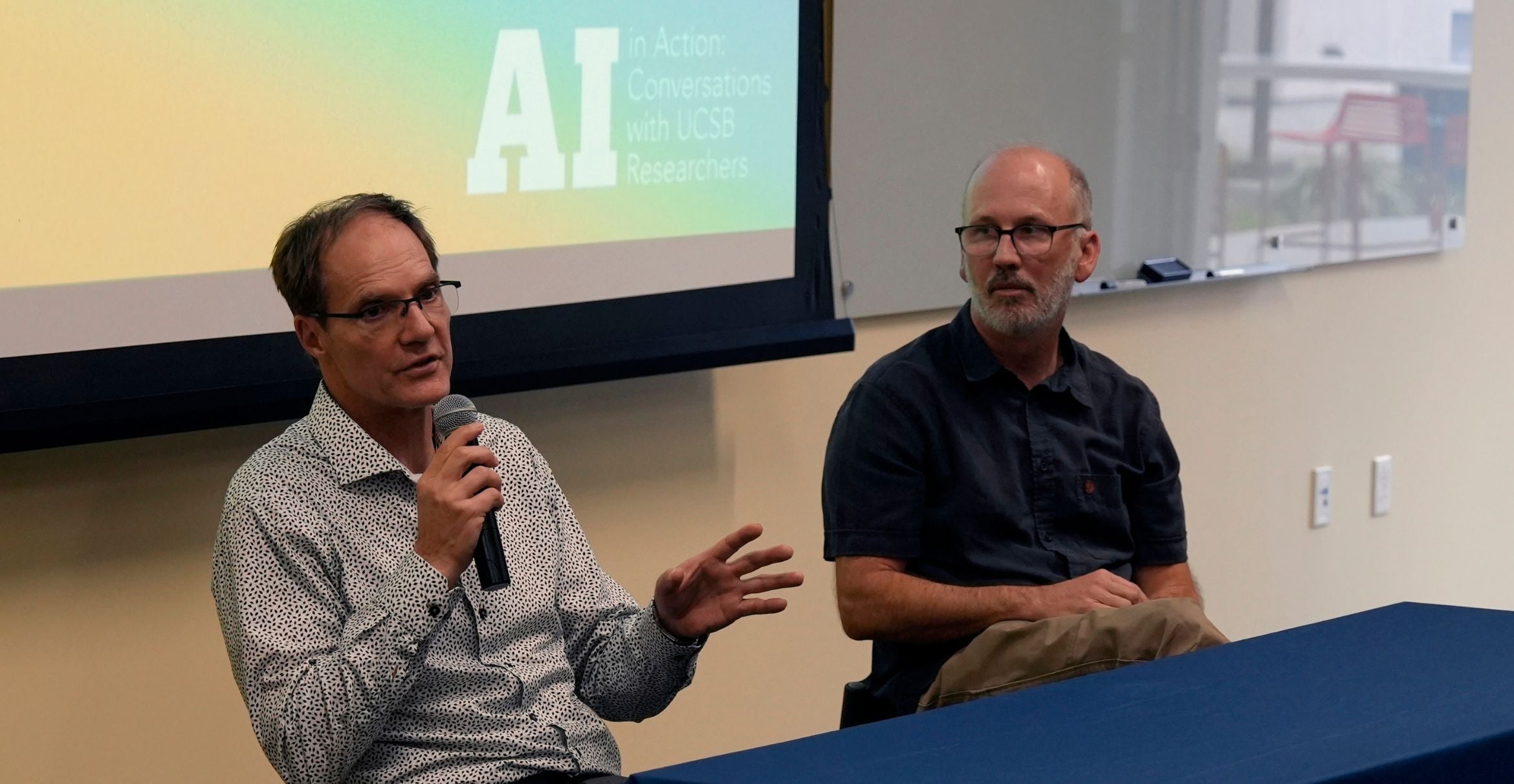
Bradley Cardinale, an assistant professor of ecology, evolution, and marine biology, has received the 2009-10 Harold J. Plous Award. One of the university's most prestigious faculty honors, the award is given annually to an assistant professor from the humanities, social sciences, or natural sciences who has shown exceptional achievement in research, teaching, and service to the university. The award was established in 1957 to honor the memory of Harold J. Plous, an assistant professor of economics.
Cardinale will have an opportunity to showcase his research when he delivers the annual Plous Lecture next spring.
"The Plous award is a prestigious peer recognition of our exceptional colleagues, given once every year on our campus," said UCSB Chancellor Henry T. Yang. "I am delighted to see this tribute given to Professor Cardinale for his exemplary research contributions on human alteration of ecosystems and restoration ecology, and for his outstanding teaching and mentoring of students in biodiversity and ecosystems research. We look forward to his exciting Plous Lecture next spring."
Said Robert Warner, professor and chair of ecology, evolution, and marine biology: "Brad is a visionary, a great example of what UCSB's role should be in addressing the pressing problems of rapid global changes. This is an interdisciplinary problem, and Brad's work spans a variety of disciplines, a hallmark of what we do best at UCSB. But his greatest talent is identifying the key observation or experiment to answer a question of central importance. Over his short career, he has already provided critical guidance to those on the front line of managing for climate change. Academia is no longer dealing with ‘pure' versus ‘applied' research, and Brad is the best example I know of using quality research to address problems of fundamental importance."
Cardinale, who joined the UCSB faculty in 2005, has won international acclaim for his research documenting the impact of species extinction on biological processes essential to the existence of life on Earth. He is the recipient of the North American Benthological Society's Hynes Award for New Investigators for the most influential paper by a young scientist in aquatic ecology, and received two best-presentation awards from that same organization. His research support totals nearly $2 million, including major grants from the National Science Foundation. He also serves on the editorial boards for the journals Ecology and Ecological Monographs, and is a major participant in the planning and development of the new National Ecological Observatory Network. The network is envisioned as a cross-continental network of terrestrial and aquatic sensors designed to monitor aspects of environmental change across all major biomes in North America.
Cardinale has a prolific and accessible body of work that includes 47 peer-reviewed publications, and interviews on National Public Radio, the British Broadcasting Corporation, and CBS Television, as well as in the science journal Nature and National Science Foundation podcasts. His research has two major focuses, the first of which concerns how species extinction affects primary production --- a fundamentally important process that regulates how much oxygen plants release into the atmosphere, the rate at which greenhouse gases, such as carbon dioxide, are scoured from the atmosphere, and the amount of food the planet can produce for a growing human population.
The second focus of Cardinale's research has to do with how species extinction affects the production of food for human populations, specifically how the production of agricultural crops is influenced by biological diversity. He was one of the first researchers to test the hypothesis that a variety of predators, parasites, and pathogens are essential for minimizing the frequency and severity of insect pest outbreaks.
A gifted and popular instructor, Cardinale earns praise from his students for the clarity, precision, and enthusiasm of his lectures. He first demonstrated his teaching ability as a graduate student at the University of Maryland, where he received the Distinguished Teaching Assistant award.
Since arriving at UCSB, he has taken on both undergraduate and graduate teaching responsibilities, developing two graduate classes from scratch to form a new core curriculum for incoming students. In addition, he has involved 20 undergraduate students in his laboratory over the last five years, and has participated in the campus's Pre-College Internship Program, which provides high school students with six-week summer lab internships.



